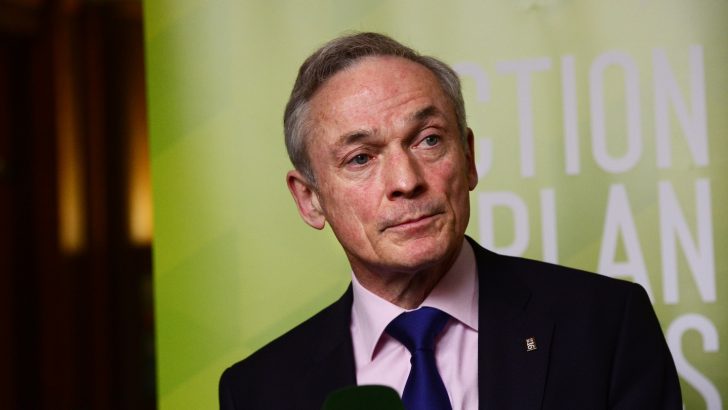The Church has given a qualified welcome to speculation that the Government is likely to push schools to prioritise locally-based children in their admissions.
This proposal, which would bar Church-owned schools from favouring children of their own faith from outside school catchment areas ahead of non-religious or minority faith children who live nearby, has been described as the “least problematic” of the options considered by education minister Richard Bruton to tackle problems supposedly caused by the so-called ‘baptism barrier’.
According to the Catholic Primary Schools Management Association (CPSMA), fewer than 0.4% of all applications received by Dublin schools are refused on religious grounds.
“Our own submission favoured the catchment area proposal, and most Catholic schools would use some variety of catchment area,” CPSMA general secretary Seamus Mulconry told The Irish Catholic, continuing, “We would see a lot of difficulties with any of the other schemes both in terms of complexity and their impact on the rights of minority faith schools.”
Complicated
Predicting that a catchment area rule might prove more complicated to legislate for than people realise, he said in practical terms such a system is commonly applied.
“A lot of our schools – most of them, I believe – are already operating a catchment rule, but in areas of high oversubscription it tends to be a question of resources rather than religion,” he said.
Pointing to Greystones, Co. Wicklow and areas in north and west Dublin as examples, he said. “Those are the clearest areas where it’s driven by resources, and then if you look at more settled middle-class areas, there seems to be other stuff going on.
“There are a number of areas in South County Dublin where you’re looking at schools that are oversubscribed, but in the locality you have DEIS schools that don’t seem to be – I think somebody needs to take a look at that,” he said.
“In all but one of the areas that we looked at oversubscription, where the lack of a baptism cert was an issue, there was a plurality of patronage,” he noted, continuing: “What we found is that in some cases other patron bodies are taking children from outside the catchment area, and that in turn is putting increased pressure on some of our schools.”


 Greg Daly
Greg Daly Minister for Education Richard Bruton
Minister for Education Richard Bruton 